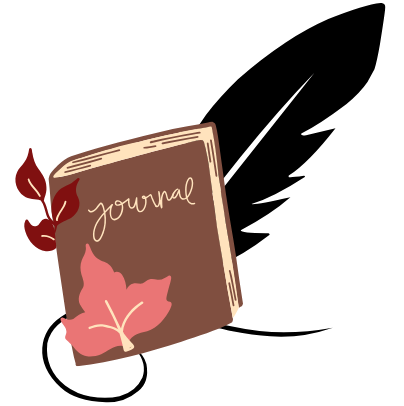As an aspiring author, I’ve uncovered that literary magazines form the backbone of the writing community.
These publications serve as platforms for emerging voices, catalysts for creativity, and vital connections between new writers and the broader literary world.
Literary magazines offer a crucial stepping stone for writers at all stages of their careers. Whether you’re crafting your first short story or refining your hundredth poem, these publications provide opportunities to showcase your work and gain recognition.
The landscape of literary magazines is incredibly diverse. You’ll encounter a wide array of publications, each with it’s own unique focus, style, and submission requirements.
From long-established print journals with decades of history to cutting-edge online platforms pushing the boundaries of digital literature, there’s a potential home for every genre and writing style.
Publishing in these magazines goes beyond seeing your name in print or on a screen. It’s an opportunity to join a vibrant community, refine your craft, and lay the groundwork for a lasting writing career.
Let’s explore the intricacies of this literary ecosystem and examine how you can make your mark.
Understanding the Landscape
Literary magazines come in an astounding variety of forms. Some are affiliated with universities, while others fiercely maintain their independence.
You’ll find publications that focus exclusively on poetry, while others embrace a wide range of genres from flash fiction to experimental prose.
Understanding this diversity is essential for finding the right fit for your work. Take the time to explore different magazines and get a feel for their person styles and preferences.
Shaping Literary Trends
Literary magazines play a crucial role in shaping literary trends. These publications often serve as testing grounds for new styles and voices that may later find their way into mainstream literature.
By reading and submitting to these magazines, you actively join in the current literary conversation and help shape it’s future direction.
Challenges in the Industry
It’s important to recognize the challenges facing literary magazines today. Many operate on extremely tight budgets, relying heavily on volunteers or minimal paid staff.
The digital revolution has brought both opportunities and obstacles.
Online publications have expanded their reach, but they also face increased competition for readers’ attention in an increasingly crowded digital landscape.
Crafting Your Submission Strategy
Submitting to literary magazines requires a thoughtful approach. It demands research, patience, and resilience.
Here’s how to develop an effective strategy:
Read Extensively
Familiarize yourself with the magazines you’re interested in submitting to. Each publication has it’s own aesthetic and editorial preferences.
By reading many issues, you’ll gain valuable insights into the types of work they publish and the overall tone of the magazine.
Follow Guidelines Meticulously
Editors receive hundreds, sometimes thousands, of submissions. Make sure your work stands out for the right reasons by following submission guidelines to the letter.
Pay attention to formatting requirements, word count limits, and any specific instructions provided by the magazine.
Embrace Rejection
Rejection is an inevitable part of the submission process. Even established authors face rejection regularly.
Instead of letting it discourage you, use rejection as motivation to improve your craft. Consider any feedback you receive as valuable insight for refining your work.
Consider Themed Issues
Many magazines publish special issues focused on particular themes. These can be excellent opportunities to tailor your work to a specific topic or concept. Keep an eye out for calls for submissions related to themed issues that align with your writing interests.
Maintain Professionalism
Treat your submissions as you would any professional communication. Be courteous, concise, and clear in your interactions with editors.
A professional approach can help you stand out and build positive relationships within the literary community.
The Submission Process
Once you’ve identified potential homes for your work, it’s time to submit. Most magazines now use online submission systems, which streamline the process but can sometimes feel impersonal.
Here’s what to expect and how to navigate the submission process:
Prepare Your Manuscript
Format your manuscript according to the magazine’s guidelines. This typically involves using a standard font, double-spacing, and including page numbers.
Pay attention to any specific formatting requirements mentioned in the submission guidelines.
Craft a Cover Letter
Include a brief, relevant cover letter with your submission. Mention any previous publications if applicable, but avoid overselling yourself.
Keep the tone professional and focus on providing the essential information editors need.
Submit and Wait
After submitting your work, prepare for a waiting period. Response times can vary widely, from a few weeks to several months, depending on the magazine.
Be patient and avoid sending follow-up inquiries unless a significant amount of time has passed beyond the stated response period.
Handle Rejections Gracefully
If you receive a rejection, handle it professionally. If the editor provides personalized feedback, consider it valuable insight for improving your work.
If not, simply move on to your next submission opportunity.
Celebrate Acceptances
When you do receive an acceptance, take a moment to savor the accomplishment. Then, work closely with the editors to polish your piece for publication.
Be open to their suggestions and maintain a collaborative attitude throughout the editing process.
Building Your Literary Network
Publishing in literary magazines extends beyond person submissions. It’s about becoming part of a vibrant community.
Here are some ways to expand your literary network:
Attend Readings and Events
Seek out literary readings and events in your area. These gatherings provide opportunities to meet other writers, hear new work, and gain inspiration for your own writing.
Join Writing Workshops
Participate in writing workshops, either in-person or online. These collaborative environments allow you to receive feedback on your work and connect with fellow writers at various stages of their careers.
Engage Online
Join online writing communities and engage with other writers on social media platforms. Many literary magazines have active online presences where you can interact with editors and fellow contributors.
Consider Literary Contests
Many literary magazines host contests, which can be an excellent way to gain recognition and sometimes win monetary prizes. However, be cautious about contests with high entry fees – carefully weigh the potential benefits against the cost of entry.
Leveraging Publication for Career Growth
Getting published in a literary magazine is an achievement worth celebrating, but it’s also a stepping stone for further career development. Here’s how to make the most of your publications:
Update Your Bio
Include your publication credits in your author bio and on your website. This helps establish your credibility as a writer and showcases your accomplishments to potential readers and industry professionals.
Share on Social Media
Many magazines appreciate when authors help promote their work. Share your publications on social media platforms, tagging the magazine and expressing your gratitude for the opportunity.
Use as a Credential
Mention your publications when querying agents or applying for writing grants. These credits show your commitment to your craft and your ability to produce publishable work.
Build on Your Success
Use the momentum from one publication to fuel your next submission. Each acceptance can boost your confidence and motivate you to continue honing your skills and seeking new opportunities.
Adapting to the Digital Age
The rise of online literary magazines has significantly changed the publishing landscape. These digital publications often have faster turnaround times and can reach a global audience.
However, they also face unique challenges in terms of visibility and sustainability.
As a writer, it’s worth considering both print and digital publications. Each offers different benefits and reaches different audiences.
Don’t discount online magazines – many are highly respected and can provide valuable exposure for your work.
Benefits of Online Publications
- Faster publication timelines
- Potential for a wider, global readership
- Opportunities for multimedia integration (e.g., audio, video)
- Easier sharing and promotion of your work
Advantages of Print Magazines
- Tangible, physical product
- Often perceived as more prestigious
- Longer shelf life
- Potential for archival preservation
Consider submitting to a mix of both online and print publications to maximize your exposure and reach different segments of the literary community.
Exercises to Hone Your Skills
Improving your craft is an ongoing process. Here are some exercises to help you develop your skills and increase your chances of success with literary magazine submissions:
Magazine Analysis
Choose three literary magazines and read their latest issues cover to cover. Write a brief analysis of each, noting their editorial styles and the types of work they publish.
This exercise will help you better understand the nuances of different publications and identify which ones might be the best fit for your work.
Submission Tracking
Create a spreadsheet to track your submissions, including the date sent, response times, and any feedback received. This organized approach will help you manage many submissions and avoid accidentally sending the same piece to a magazine twice.
Flash Fiction Challenge
Write a finish story in 500 words or less. Many magazines have flash fiction categories, and this exercise will help you tighten your prose and focus on essential elements of storytelling.
Practice crafting compelling narratives with limited word counts.
Literary Magazine Swap
Exchange favorite literary magazines with a writing friend. Discuss what you like about each other’s choices and why.
This exercise exposes you to new publications and perspectives, broadening your understanding of the literary magazine landscape.
Cover Letter Workshop
Write three different versions of a cover letter for the same piece. Share them with fellow writers and talk about which is most effective and why.
This exercise helps you refine your ability to present your work professionally and concisely.
Types of Literary Magazines
Literary magazines come in various forms, each catering to different styles, genres, and audiences. Understanding these categories can help you target your submissions more effectively:
General Literary Magazines
These publications accept a wide range of genres, including fiction, poetry, and creative nonfiction. They often feature a mix of established and emerging writers.
Examples: The Paris Review, Ploughshares, Granta
Genre-Specific Magazines
These focus on particular genres or styles of writing, such as science fiction, mystery, or experimental literature.
Examples: Asimov’s Science Fiction, Ellery Queen’s Mystery Magazine, DIAGRAM
University-Affiliated Magazines
Many colleges and universities publish literary magazines, often featuring work from both students and established writers.
Examples: The Kenyon Review, The Iowa Review, The Southern Review
Online-Only Magazines
These digital publications exist solely on the internet, often embracing innovative formats and multimedia elements.
Examples: Narrative Magazine, Electric Literature, The Collagist
Print-Only Magazines
Some publications maintain a commitment to traditional print formats, often with a focus on design and physical presentation.
Examples: McSweeney’s Quarterly Concern, The Believer, Tin House
Hybrid Magazines
Many publications now offer both print and online versions, combining the benefits of both formats.
Examples: The New Yorker, Poetry Magazine, The Atlantic
The Editorial Process
Understanding the editorial process can help you appreciate the journey your submission takes and why response times can vary. Here’s a general overview of what happens behind the scenes:
- Initial Screening: Submissions are first reviewed to ensure they meet basic guidelines (word count, formatting, etc.).
- First Read: Editors or readers assess the overall quality and fit of the submission.
- Further Consideration: Promising pieces move on to extra rounds of reading and discussion.
- Editorial Meeting: Final decisions are often made collaboratively by the editorial team.
- Acceptance or Rejection: Authors are notified of the decision, sometimes with feedback.
- Editing Process: Accepted pieces undergo editing and revision in collaboration with the author.
- Publication: The final piece is prepared for publication in an upcoming issue.
This process can take anywhere from a few weeks to several months, depending on the magazine’s resources and submission volume.
Rights and Contracts
When your work is accepted for publication, you’ll typically be asked to sign a contract. It’s crucial to understand the rights you’re granting to the magazine.
Common terms include:
- First Serial Rights: The right to be the first to publish the work in print or digital form.
- Exclusive Rights: A period during which the magazine has exclusive rights to publish the work.
- Non-Exclusive Rights: The ability to publish the work alongside other publications.
- Reprint Rights: Permission to republish the work in future anthologies or collections.
Always read contracts carefully and don’t hesitate to ask for clarification if anything is unclear.
Building a Writing Routine
Consistent writing practice is key to improving your craft and increasing your chances of publication. Here are some tips for establishing a productive writing routine:
- Set aside dedicated writing time each day, even if it’s just for 30 minutes.
- Create a comfortable writing space free from distractions.
- Experiment with different times of day to find when you’re most creative.
- Set realistic goals for word count or time spent writing.
- Join a writing group or find an accountability partner to stay motivated.
Remember, the most important thing is to write regularly. Even on days when inspiration is lacking, the act of showing up and putting words on the page is valuable practice.
Networking and Community Building
Building connections within the literary community can open doors to new opportunities and provide valuable support. Here are some ways to expand your network:
- Attend literary festivals and conferences
- Participate in local writing groups or book clubs
- Engage with writers and editors on social media platforms
- Volunteer for literary organizations or magazines
- Offer to review books or interview authors for literary websites
These connections can lead to collaborations, mentorships, and insider knowledge about upcoming opportunities in the literary world.
Developing Your Voice
One of the most important aspects of your writing is your unique voice. This is what sets your work apart and makes it memorable to readers and editors.
To develop your voice:
- Read widely across genres and styles
- Experiment with different narrative perspectives
- Pay attention to the rhythms and cadences in your writing
- Write about subjects that genuinely interest or move you
- Be willing to take risks and push boundaries in your work
Remember that finding your voice is an ongoing process that evolves as you grow as a writer.
Handling Criticism and Feedback
Receiving feedback on your work, whether from editors, peers, or writing groups, is an essential part of growth as a writer. Here’s how to make the most of criticism:
- Approach feedback with an open mind
- Allow time to process feedback before responding or making changes
- Look for patterns in the feedback you receive
- Consider the source and their expertise when weighing feedback
- Use constructive criticism as a tool for improvement, not discouragement
Remember that even negative feedback can be valuable in helping you refine your work and grow as a writer.
The Future of Literary Magazines
The landscape of literary magazines continues to evolve with technological advancements and changing reader habits. Some trends to watch include:
- Increased integration of multimedia elements in online publications
- Growth of niche and specialized magazines catering to specific audiences
- Experimentation with new funding models, such as crowdfunding and subscriptions
- Greater emphasis on diversity and inclusion in both content and editorial teams
- Exploration of new formats, such as mobile-first design and interactive storytelling
Staying informed about these trends can help you adapt your writing and submission strategies to the changing literary landscape.
Frequently Asked Questions
How do I find literary magazines to send to?
Research online databases like Duotrope or Poets & – Writers, browse bookstores and libraries, and ask for recommendations from other writers.
What should I include in my cover letter?
Keep it brief and professional. Include your name, the title and word count of your submission, and any relevant previous publications.
How many submissions should I have out at once?
This varies by writer, but having 5-10 submissions out at a time is common. Always check each magazine’s policy on simultaneous submissions.
How long should I wait before following up on a submission?
Check the magazine’s stated response time. If it’s been significantly longer, a polite inquiry after 3-6 months is generally acceptable.
Do I need an agent to send to literary magazines?
No, most literary magazines accept direct submissions from writers without agent representation.
How important are previous publications when submitting?
While previous publications can help, many magazines are open to publishing new writers. Focus on the quality of your work.
Can I send previously published work?
Most literary magazines seek previously unpublished work. Always check the submission guidelines for each publication’s policy.
How do I deal with rejection?
Remember that rejection is a normal part of the writing process. Use it as motivation to improve and keep submitting.
Are online publications less prestigious than print?
Many online publications are highly respected. The prestige of a magazine depends on it’s reputation and the quality of work it publishes, not it’s format.
How can I improve my chances of getting published?
Read the magazines you’re submitting to, follow guidelines carefully, and continually work on improving your craft.
Key Takeaways
- Literary magazines provide vital platforms for emerging writers to gain exposure and hone their craft.
- Research and target magazines that align with your writing style and goals.
- Embrace rejection as part of the process and use it as motivation to improve.
- Building a network within the literary community can lead to valuable opportunities.
- Online and print magazines each offer unique benefits – consider submitting to both.
- Consistent writing practice and ongoing skill development are crucial for success.
- Understanding the editorial process and rights agreements is important for navigating the publishing world.
- Developing your unique voice and handling feedback constructively are key to growth as a writer.
- Stay informed about trends in the literary magazine landscape to adapt your strategies effectively.




